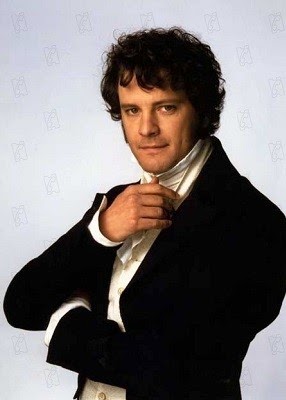 |
| Colin Firth as Fitzwilliam Darcy |
The article, published without a byline, is problematic in itself. Advice includes such unbridled bullshit as:
- He can balance both swag and sophistication and a career and a personal life without too many proverbial exclamation points
- He reads actual books and newspapers and holds opinions on everything from scotch pairings to world events all the while understanding that not all of his opinions are facts and that not everyone has to agree with him
- He has a career, a hobby, a family of close friends and a favorite way to have his steak prepared and he isn't the least bit intimidated when the woman in front of him shares these qualities
 |
| Clark Gable as Rhett Butler |
Well, but Jane Austen’s Mr. Darcy inherited his money. That model of gentlemanliness reflects an essentially aristocratic social structure, separating control of wealth from creation of value. Certainly we have that in America today, but not every woman can date some Manhattan hedge-fund manager. Though aggregate American wealth now exceeds what we had before the 2008 collapse, but if you disaggregate the super-rich, ordinary Americans are hurting.
Set that aside, though. Return to this listicle’s opening chapter. Reread the sentence that states: "every man and woman on the planet should be made to watch ‘Gone With The Wind’ at least twice, if only to teach men how to be men and women how to separate them from the boys.” Read it again. Now read it again. Go on. I’ll wait.
I haven’t seen Gone With the Wind recently. I cannot comment authoritatively upon the movie. Therefore, I must retreat into the book and ask: does this anonymous author mean the scene where Rhett mocks Scarlett’s callused hands as innately unladylike? The scene where he leaves her as recompense for her having changed from a lily-white flower of antebellum gentility? Or the scene where he punishes her constant manipulations by raping her—to her apparent approval?
That model of “gentlemanliness” is repulsive to me. Margaret Mitchell’s classic novel depicts a relationship predicated on constant power politics, jockeying for Machiavellian advantage, which divides winners from losers. Mitchell breaks the narrative at multiple points to propound how things used to be good when men were men, women were women, and white trash and slaves knew their place. But the world she describes is distinctly unsavory.
 |
| Marlon Brando as Stanley Kowalski— the man you're actually likely to get |
Which reminds me, there’s that rape theme again. Many women I know, victimized by men, would celebrate the retreat of certain aspects of traditional masculinity.
My opinion about these shame-mongering listicles is already documented. They only exist to heap shame upon the already disfranchised, to kick the weak for being weak. This author, too cowardly to sign his/her own name, belittles men on dating websites for insufficiently resembling matinee idols. But society owes itself the dignity of a real masculine identity that gives everybody, men and women alike, something to strive towards.
On a related subject:
The Ernest Hemingway Effect
Most of the so-called manly men I've known expect me to pretend to be less (intelligent, emotionally stable, capable, etc.) so that they can pretend to be more. Give me just a regular guy whose struggling, like me, to bring some clarity out of confusion.
ReplyDelete